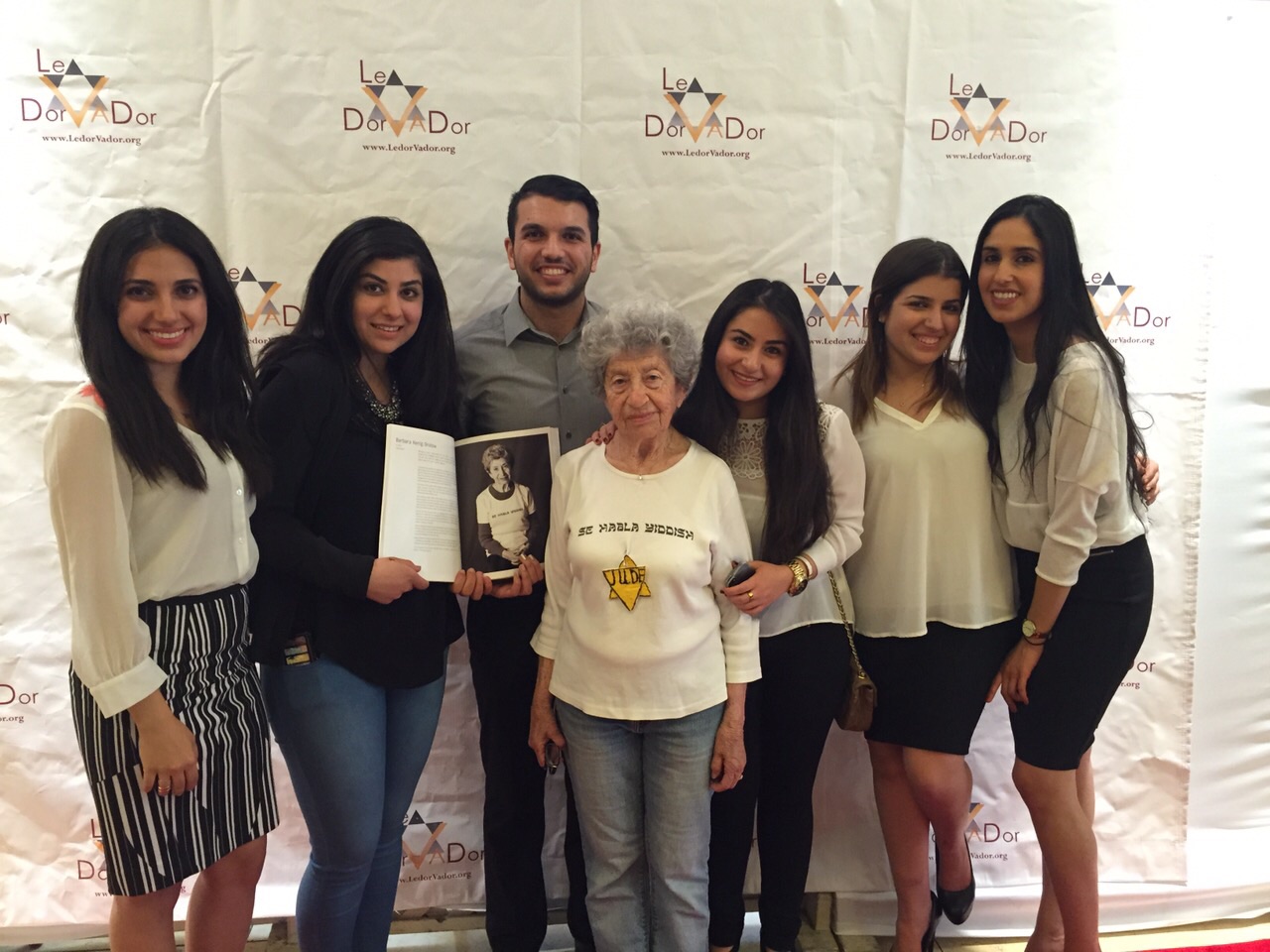April marks the seventy year anniversary of the allied liberation of Jews and many other peoples from concentration camps all over Europe. During the Holocaust, German Nazis killed approximately twelve million people, six million of whom were Jews and one and a half million of whom were children. With time distancing the present from the Holocaust, survivors are slowly passing away, and some are concerned that there soon will not be any survivors left to pass on their stories to the Jewish community.
On Sunday, April 19, iCare Foundation and Nessah Synagogue of Beverly Hills organized an event to honor the remaining Holocaust survivors on Yom HaShoah, also known as Holocaust Remembrance Day. Planned by Nessah Synagouge’s Rabbi Biijan Zansar and Ledor Vador board members, as well as by the founders of iCare Foundation, the event was a huge success.
“This is the third year that iCare is throwing an event for Yom Hashoah,” Natalie Zansar, Rabbi Zansar’s wife, said.
The Zansars organize these events to “increase the significance of Jewish identity [in young people] … to [help them] define and identify [themselves] as Jew[s] regardless of the challenges.” The older the generation gets, the more likely it is to forget about the hard, tragic times that the Jewish people have faced. “The problem is that there will be less survivors and more deniers,” Natalie Zansar said.
Rabbi Zansar added that he believes today’s children are spoiled and fail to realize how lucky they are to be living in a century where everything is handed to them or otherwise readily available. “The [children of the] new generation take advantage and don’t realize the challenges… their ancestors [faced] to migrate from country to country just to live a comfortable life.”
George Harounian, vice president of Nessah Synagogue, spoke at the event about how “it’s our responsibility as a Jewish Community to make sure that the history of the Holocaust gets passed on from generation to generation.” Additionally, Harounian mentioned how students today should study history not only for warnings of history repeating itself, but also just for the sake of remembering.
Victor Frankel, a Holocaust survivor, psychotherapist, writer, and speaker, also spoke at the event and relayed that “life is about making meaning of these experiences we encounter to help get through all the tough times and to realize what all the good times are. We can never know how good life is if we never experience hardships.”
As the event came to an end, the Holocaust survivors stood up from their seats, personally introduced themselves to the audience, and all received roses. They also mentioned their most personal stories of what it was like entering and leaving the concentration camps and ghettos.
Barbra Drowtow, one of the Holocaust survivors, was “smuggled” from her home into the concentration camps as a child. As the only survivor of the war in her family, Barbra moved to Israel and now lives in Los Angeles, where she teaches young students and who refuses to be silence by the atrocities of the Holocaust.
Sally Souroudy, another Holocaust survivor in attendance, was just eleven years old when the Nazis took her from her home in Poland and sent her to the camps. She also emerged from the war as the only surviver in her family. “When my mother passed away, the Germans just said that my mother just happened to die, but no one dies at the age of forty. They purposely ignored the fact that she was tortured to death in the gas chambers,” Saroudy told the audience. Another survivor mentioned that after escaping the war, he had no knowledge of and no closure about his family’s whereabouts. To this day, he has no idea if his father had still been alive after the war and if so, where his father might be buried.
As a Jew, it’s important to attend these special events to ensure that what happens in history will never be forgotten. Attending this event made me realize how much I personally take for granted. Speaking with these Holocaust survivors and seeing how grateful and happy they are, despite all the suffering they experienced, makes me think twice before I start to complain about life.
Sheila, another survivor in attendance, stated, “I’m here today, not for people to feel sorry for me, but for people to realize how beautiful life is and how one bad experience shouldn’t change the way you look at [it].”

